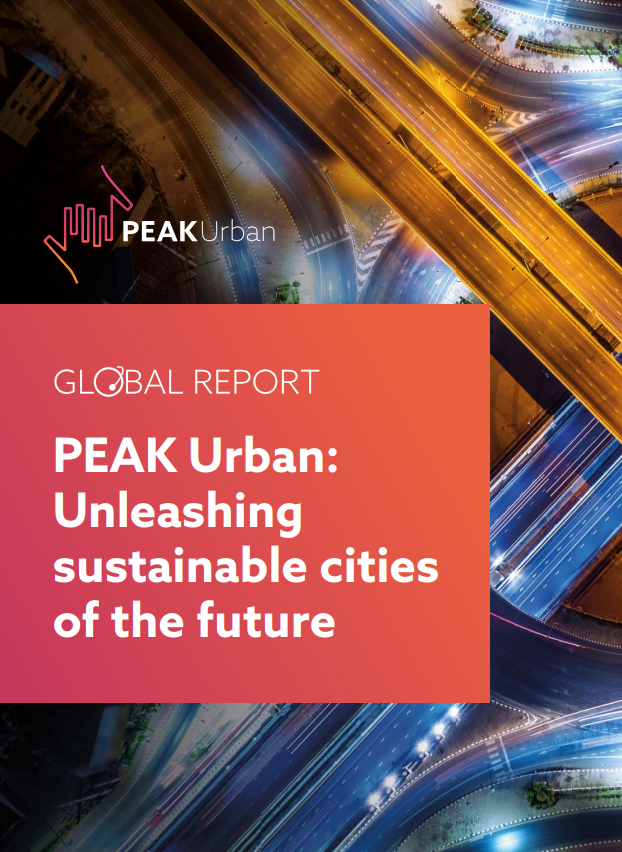Unleashing sustainable cities of the future

This report explains the importance of cities in achieving global sustainability and the need for a new transdisciplinary urban science to address the challenges of future cities. The urban arena encompasses various systems such as food, energy, water, sanitation, mobility, public health, dwelling, and working, making cities complex "systems of systems." However, this urban science must also consider the specificities of place and time, the historical legacies shaping present-day social and economic formations, and the power of geographies in influencing city systems and future trajectories. The sustainability sciences are not easily comparable, as they differ in their logic, and value measurement, and interface with contested social and institutional values.
To address these challenges, PEAK Urban designed a transdisciplinary and translational approach that bridged research and practice. Their interventions worked across different scientific traditions and aimed to provide bespoke solutions to the complex "wicked" problems of cities. They combined an analytical understanding of how cities function, normative perspectives on urban organisation, and operational insights on effective interventions for shaping urban futures. This report emphasises the importance of evidencing scientific claims while acknowledging the normative implications of global social formations and the operational space necessary for addressing challenges, ranging from local interventions to global cooperation.
In summary, it highlights the significance of cities in sustainability efforts, the need for transdisciplinary urban science, and the PEAK Urban approach that integrates analytical, normative, and operational dimensions to address complex urban problems practically and scientifically.
PEAK Urban identifies the proactive policies and interventions that can produce an efficient, productive, inclusive, and sustainable urban future. Access the South Africa Country Synthesis Report here.
Abstract based directly on source.


Comments